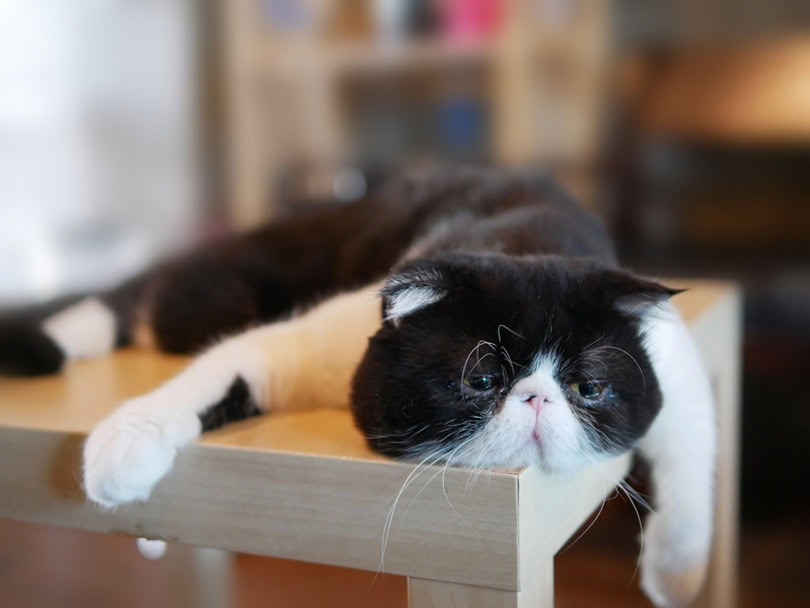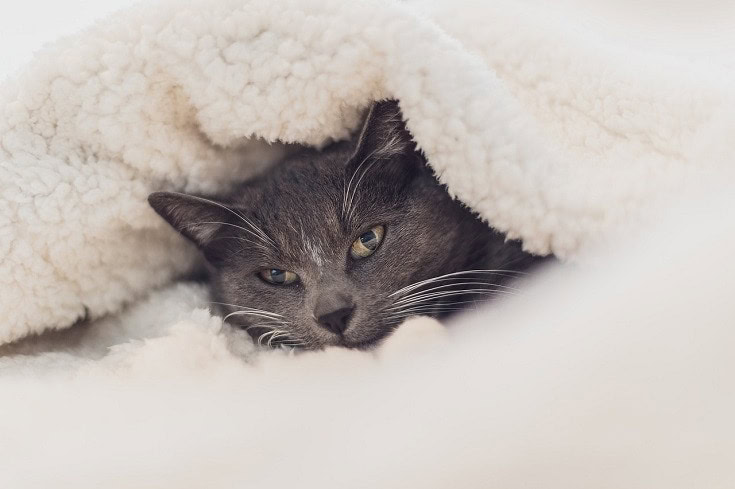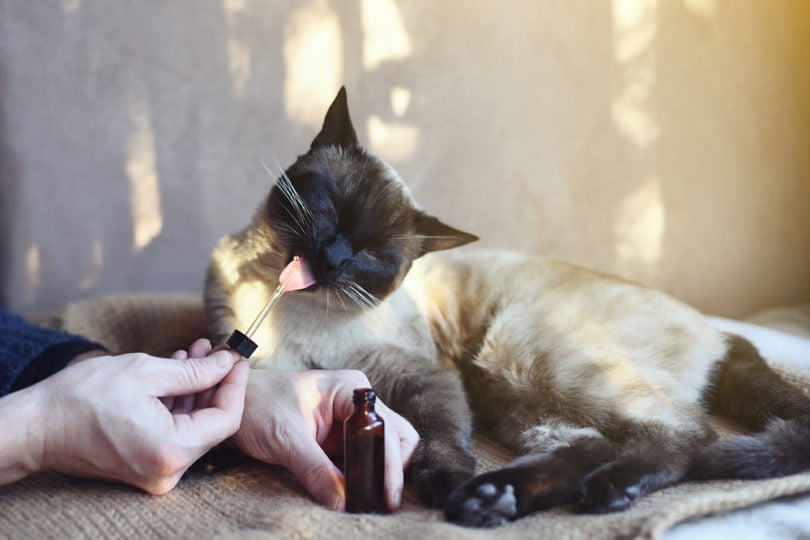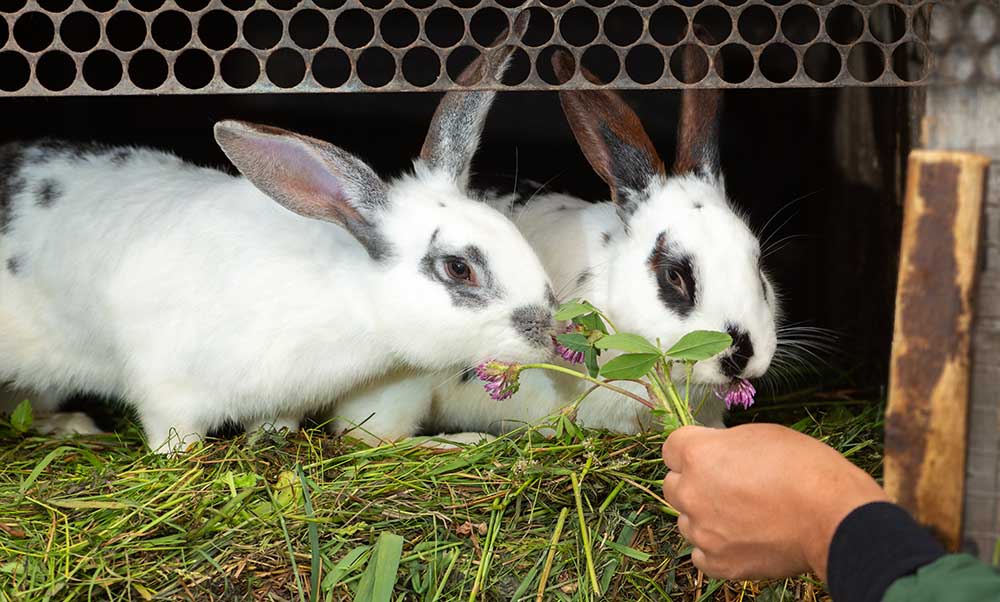VET APPROVED

The information is current and up-to-date in accordance with the latest veterinarian research.
Learn more »Click to Skip Ahead
Cats have the reputation of being aloof, but anyone with a cat in their life knows that isn’t true for many felines. Cats are affectionate, active, fun, and sassy. They are complex and emotional, so it shouldn’t be surprising that cats can also feel sadness.
More worrying is that signs of sadness can also be caused by illness or pain, and these can be difficult to distinguish in some cases. Owners can sometimes miss when a cat is not feeling well or is in pain, if they misinterpret the signs as being sad. A quiet and calm cat, for example, can appear to be sad. There are various reasons your cat might be feeling blue, but some are more obvious than others. Read on to learn the signs of sadness and how to cheer up your feline friend.

The 4 Possible Reasons Your Cat Can Feel Sad
Sometimes the reason your cat is feeling sad is apparent, and sometimes it might be something you haven’t noticed. Have you been spending less time together? Cats are not fond of changes in their environments or routines. So, if you’ve been busier than usual lately, plan some time to hang out together.
1. Loss of a Loved One
Losing a family member (human or pet) can be difficult for everyone, whether that loss is through death or someone leaving home. Your cat can grieve the loss, just like you, but it is a temporary state. With some time, your cat should return to normal. However, during this period, make sure your cat is still eating and drinking normally, as well as urinating and defecating. If not, they should be checked out by your vet as something else could be amiss.
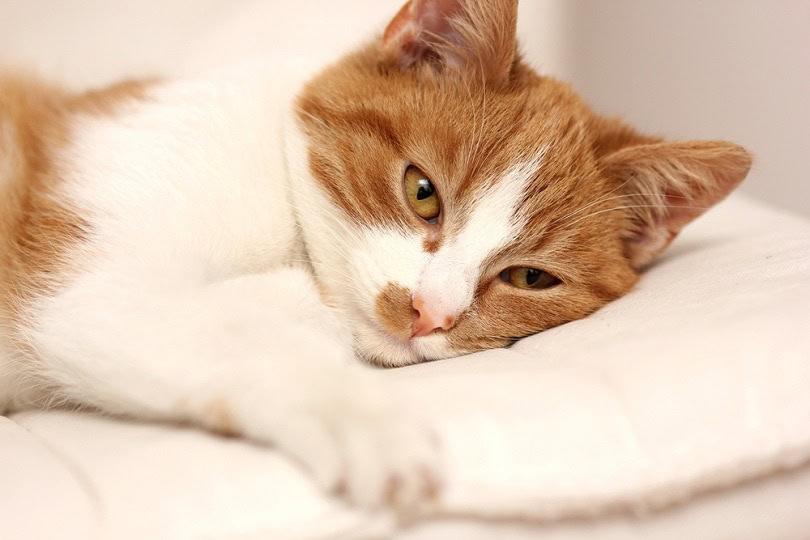
2. Changes in the Home
This can be anything that involves a change in your cat’s routine. For example, changes in meal times, playing, and interactions with their favorite person, if they have suddenly started working from the office, or a new addition to the house, such as a new baby or a different pet. Any of these changes, particularly if they are sudden, may cause stress to your cat, which manifests as them feeling sad, withdrawn, hiding, or becoming clingy, displaying undesirable behaviors, such as toileting outside of the litter box, scratching the furniture, and others.
3. Injury
Your cat may sustain an injury when jumping, running around, playing, or just being a cat. The injury can sometimes even go unnoticed, or it may significantly impact their day to day activities. Pain from the injury may also affect your cat’s mood. Old injuries can cause residual pain or discomfort and may require chronic pain relief. Make sure you follow a vet’s instructions regarding pain relief, and hopefully, your cat will be back to their usual self in no time!
4. Illness
Your cat may be ill and feel lethargic and weak, which could appear as if they’re sad. They may feel nauseated and not want to eat. Most illnesses and diseases will affect their moods and energy levels, such as kidney and liver disease, upper respiratory diseases, dental disease, digestive problems, and cancer. If you suspect your cat is looking sad because they’re unwell, contact your vet as soon as possible.
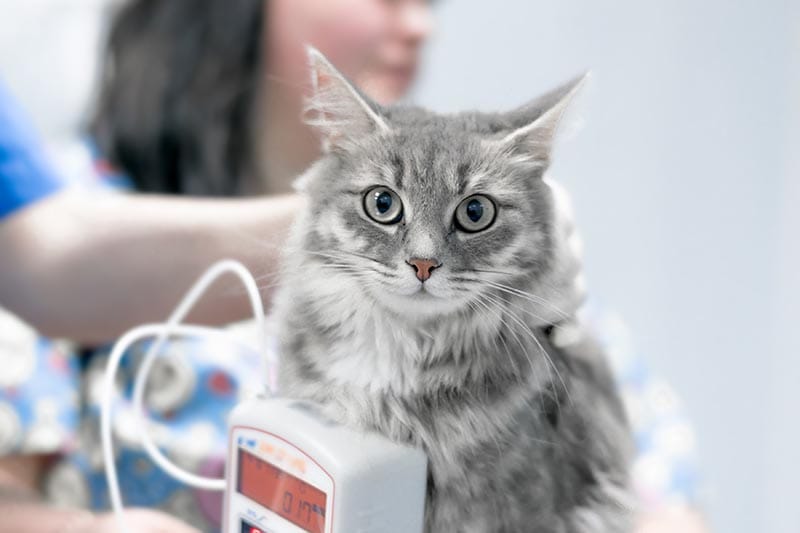

Signs of a Sad Cat
If you notice any of these signs, it could be an indication your cat is sad, stressed, injured or ill:
- Sudden changes in behavior, becoming more clingy or avoidant, hiding
- Grooming changes, overgrooming or poor grooming
- Reduced appetite or complete loss of it
- Low energy, disinterest in playing or interaction
- Changes in litter box routines
- Sleeping more
- Changes in vocalization
You know your cat best, and you’re the best judge if their behavior seems different. For example, a change in vocal cues can also signify something is amiss. Is your cat meowing more or less than usual? Unhappy noises are usually high-pitched and distressed yowls, and purring does not always indicate contentment. Your unhappy kitty may purr to comfort themselves. A quiet cat may become louder and more vocal, but a noisy cat could become quiet.
Changes in appetite, drinking, energy levels and toilet routines also more commonly signify that something is wrong health-wise and should always warrant a check up with the vet.
How To Make Your Cat Happy
The ways you cure your cat of sadness will depend on why they’re sad. If they’re mourning a loss, extra love and attention can help. If your cat is sad because they miss you, playtime and quality time will do the trick.
So, when do you call the vet? You should contact your vet if you’re unsure or if you notice any signs of stress, illness, pain, if your cat is not eating, or if they are showing changes in their behavior, grooming, toileting habits, energy levels or others. Despite some of these signs occurring in cases of sadness, particularly if there is a reason they may be mourning, a check up at the vet is recommended as there could be something wrong with their health as well.

Conclusion
While cats feel sadness, the reasons behind the feeling can be varied. If you notice any changes in behavior that can’t be connected to a sudden change in routine, like a death in the family or a significant change to your schedule, it could indicate something more serious. Be sure to contact your vet if you’re worried and follow the treatment instructions carefully.
Featured Image Credit: 9lnw, Shutterstock
